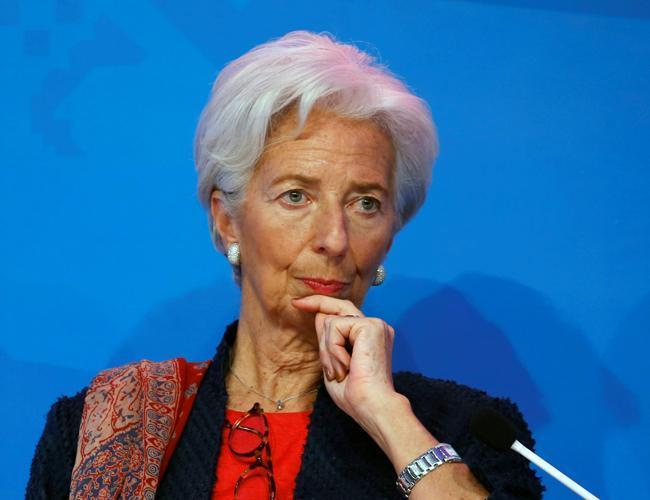
No one emerges victorious from a trade war, International Monetary Fund chief Christine Lagarde said on March 7, warning that the economic impact of U.S. import tariffs would be serious if other countries respond with their own barriers.
On March 6, U.S. President Donald Trump reiterated his plan to slap big tariffs on steel and aluminum imports, warning the European Union it would get hit with a “big tax” for failing to treat the United States well over trade matters.
“The macro-economic impact would be serious, not only if the United States took action, but especially if other countries were to retaliate, notably those who would be most affected, such as Canada, Europe, and Germany in particular,” Lagarde said on French radio RTL, as reported by Reuters.
Trump’s comments have sparked cries of foul play from U.S. trading partners and warnings from U.S. lawmakers and businesses of the potential for a tit-for-tat trade war that could hurt the U.S. economy. Trump has said the United States could win such a war, since it was running such a large trade deficit.
“In a so-called trade war, driven by reciprocal increases of import tariffs, nobody wins, one generally finds losers on both sides,” Lagarde said, adding that she hoped that Trump would not implement the tariffs threat.
Trump’s top economic advisor Gary Cohn, seen as a voice for Wall Street in the White House, said he would resign after he lost the fight against Trump over the tariffs.
Lagarde indicated that Trump might have a case for threatening tariffs, saying there were “a few good reasons” to protest against the current situation.
“There are some countries in the world that do not respect the World Trade Organisation agreements, and which impose technology transfers. China is a case in point but it is not the only country with such practices,” she said.
But she said international trade was an engine for growth, innovation and competitiveness and cautioned that any threat to trade was risky for world growth.
“If world trade were jeopardised by such measures (tariffs), they would become a vector for lower growth and a slowdown of commerce. The impact on growth would be a formidable,” she said.
Lagarde said she had the impression that the White House had not thought through the risks of retaliation.
“It looks like two camps have fought over whether or not to implement such measures and that one of the camps won the upper hand,” she said.
Harsh reaction from EU
The EU’s top official also hit back on March 7 at Trump, saying “trade wars are bad and easy to lose” as the bloc prepared to retaliate against the U.S. president’s planned steel and aluminium tariffs.
“President Trump has recently said and I quote, ‘trade wars are good and easy to win.’ But the truth is quite the opposite. Trade wars are bad and easy to lose,” European Council Donald Tusk told a press conference in Luxembourg, as quoted by Agence France-Presse.
The European Union also said it is ready to react to U.S. steel and aluminium tariffs but still hopes they can be avoided.
“A trade war has no winners and if it does not happen for the better, then we can work with our American friends and other allies on the core issue of this problem, overcapacity,” European Commissioner for Trade Cecilia Malmstrom said on Wednesday.
“But if it does happen we will have to take measures to protect European jobs,” she added.
The European Union has drawn up a list of U.S. products - from bourbon to Harley Davidson motorbikes - on which to apply tariffs if Trump goes ahead.